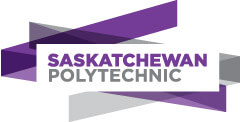About Geographic Information Science Certificate in Saskatchewan Polytechnic
Program Overview
Geographic information science (GIS) is a relatively new field that uses computer technology to link maps to digital data. Environmental agencies and resource companies rely on the skills of GIS technicians when they’re making critical decisions about the development and use of forests, fisheries, wildlife and land.
If you have good computer skills, a keen eye for detail and an interest in natural resource management and land use planning, the Geographic Information Science program will interest you. Even better, you can launch your career in less than a year.
Geographic Information Science is a one-year certificate program offered full time at Saskatchewan Polytechnic Prince Albert campus. Some courses are available through distance and/or continuing education. Computer literacy is essential to handling the course load.
The resource management focus is unique. You’ll learn the concepts, practice the applications and build basic skills in using GIS software to address natural resource management issues. In this hands-on approach to using GIS software and technologies you’ll learn about:
- UAV/Drone data acquisition interpretation and process
- GIS process automation
- Database and worksheet design
- Global Positioning Systems (GPS)
- Web mapping and web cartography
- Remote sensing and image analysis
Learn by Doing
Your training will include hands-on learning, field experience and an applied research project, where you’ll have the opportunity to work on a resource management-related project. When you graduate, you’ll have much more than a textbook understanding of GIS theory—you’ll have actual experience using GIS and applying it in different situations.
GIS vs. GPS
Geographic information science (GIS) is often confused with global positioning systems (GPS) because of the similar initials. The difference is that GIS uses GPS to help navigate data and display very complex processes that need a geographic component, such as where things are.
Career and Salary Information
Your Career
Saskatchewan Polytechnic has an excellent track record when it comes to getting grads into jobs: 80% of GIS grads are working in their field within six months of graduation. They work as GIS mapping technicians, GIS specialists, mapping cartographers, GPS operators, data analysts or remote sensing analysts. With your specialized training in applying GIS to resource management, you can explore job opportunities with a wide variety of potential employers, including natural resource-based industries, First Nations industries, consulting firms, environmental agencies, government departments and municipal agencies.
Academic qualification equivalents:
- Secondary School Diploma or equivalent, include one English, Grade 12 (ENG4C or ENG4U), minimum 60%
English language requirements (one of the below):
- IELTS : Overall minimum score of Band 6.5 with a minimum score of 5.0 in each component.
- TOEFL : An overall minimum score of 81 on the Internet-based Test of English
- PTE : A minimum score of 63 with minimum component scores of 50.
Saskatchewan Polytechnic Highlights
| Type |
Public |
| Campus Setting |
Urban |
| Application mode |
Online and Paper mode available |
| Graduation rate |
62% |
| Acceptance rate |
96% |
| Number of Students |
16,008 |
| Overall cost of living |
14,762 CAD |
| Academic calendar |
Semester based |
| % of International students |
6% |
| Number of campuses |
4 |
| Medium of instructions |
English |
| Undergraduate Tuition fee |
14,044 CAD |
| Postgraduate Tuition fee |
16,426 CAD |
| Cost of living |
694 -1147 CAD per month |
Saskatchewan Polytechnic First-Year Tuition Fees And Living Expenses For International Students
Over the course of one academic year, the following graph displays tuition and living expense estimates in Canadian currency for one full-time international undergraduate student. Please bear in mind that these are only estimates; actual pricing will vary depending on your needs and preferences. Other factors to consider include currency changes, visa and study authorization fees, and vacations back home.
- For international students, the overall fees will range from:-
| Particulars |
Amount |
| Administrative fees |
50.00 to 150.00 CAD |
| Application fees |
150 CAD |
| Student association fee |
95.00 to 445.00 CAD |
| Non-refundable fee at the start) |
1,000 CAD |
| Tuition fee range |
6,195 to 18,089 CAD |
| Laboratory fee |
100.00 to 409.00 CAD with no fees for
some courses which do not have a lab service. |
| Books and Supplies |
200 to 3,725 CAD |
| Technology fee |
50 to 146 CAD |
- For a student of Saskatchewan Polytechnic the required financials (Cost of Attendance) can be:-
| Description of Financials |
Amount in CAD |
| Average cost of tuition |
11245.77 CAD |
| Cost of living |
10799.39 CAD |
| Application fee |
150 CAD |
| Estimated total (per year) |
22,195.16 CAD |

